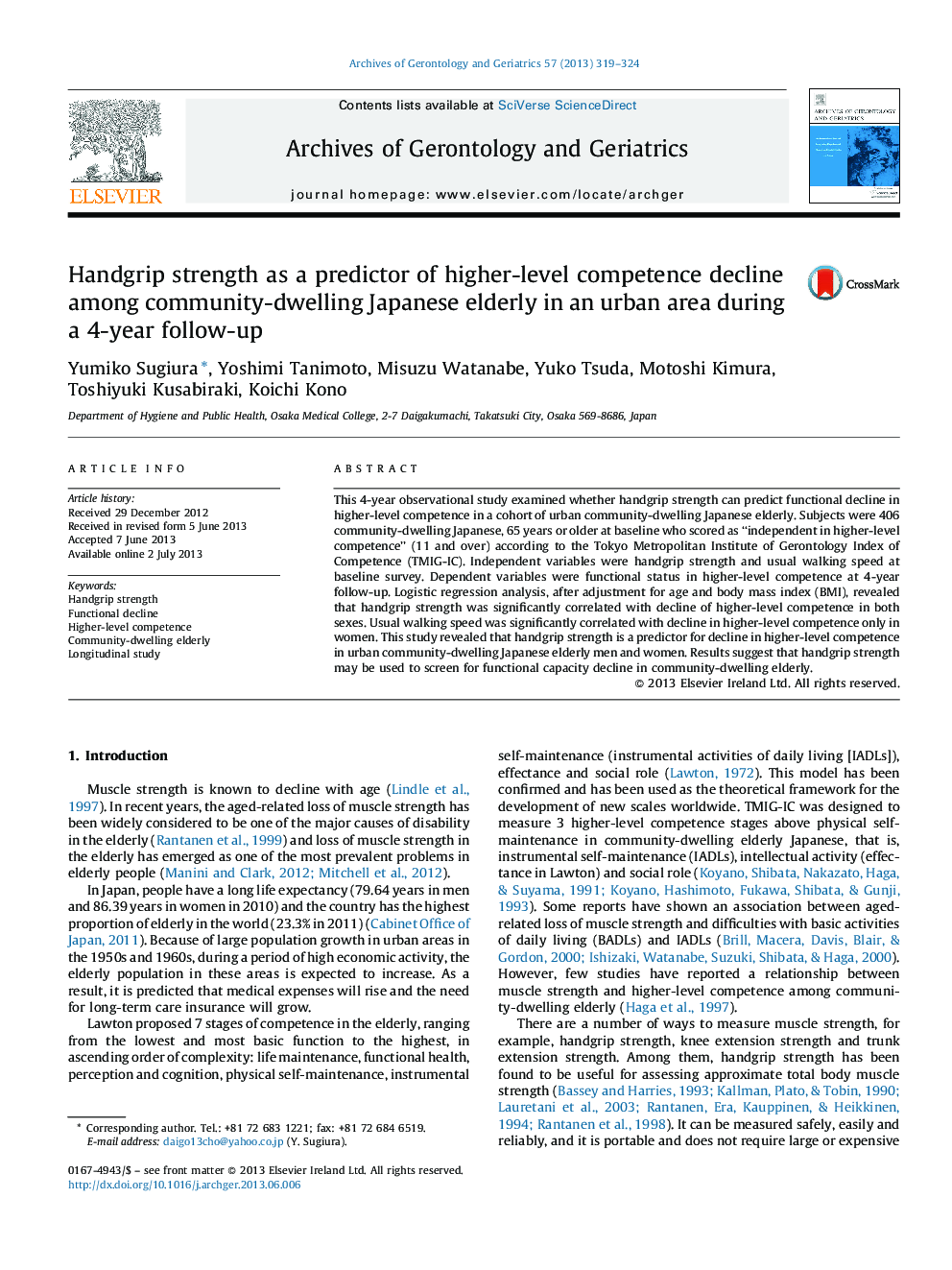| Article ID | Journal | Published Year | Pages | File Type |
|---|---|---|---|---|
| 1903213 | Archives of Gerontology and Geriatrics | 2013 | 6 Pages |
This 4-year observational study examined whether handgrip strength can predict functional decline in higher-level competence in a cohort of urban community-dwelling Japanese elderly. Subjects were 406 community-dwelling Japanese, 65 years or older at baseline who scored as “independent in higher-level competence” (11 and over) according to the Tokyo Metropolitan Institute of Gerontology Index of Competence (TMIG-IC). Independent variables were handgrip strength and usual walking speed at baseline survey. Dependent variables were functional status in higher-level competence at 4-year follow-up. Logistic regression analysis, after adjustment for age and body mass index (BMI), revealed that handgrip strength was significantly correlated with decline of higher-level competence in both sexes. Usual walking speed was significantly correlated with decline in higher-level competence only in women. This study revealed that handgrip strength is a predictor for decline in higher-level competence in urban community-dwelling Japanese elderly men and women. Results suggest that handgrip strength may be used to screen for functional capacity decline in community-dwelling elderly.
